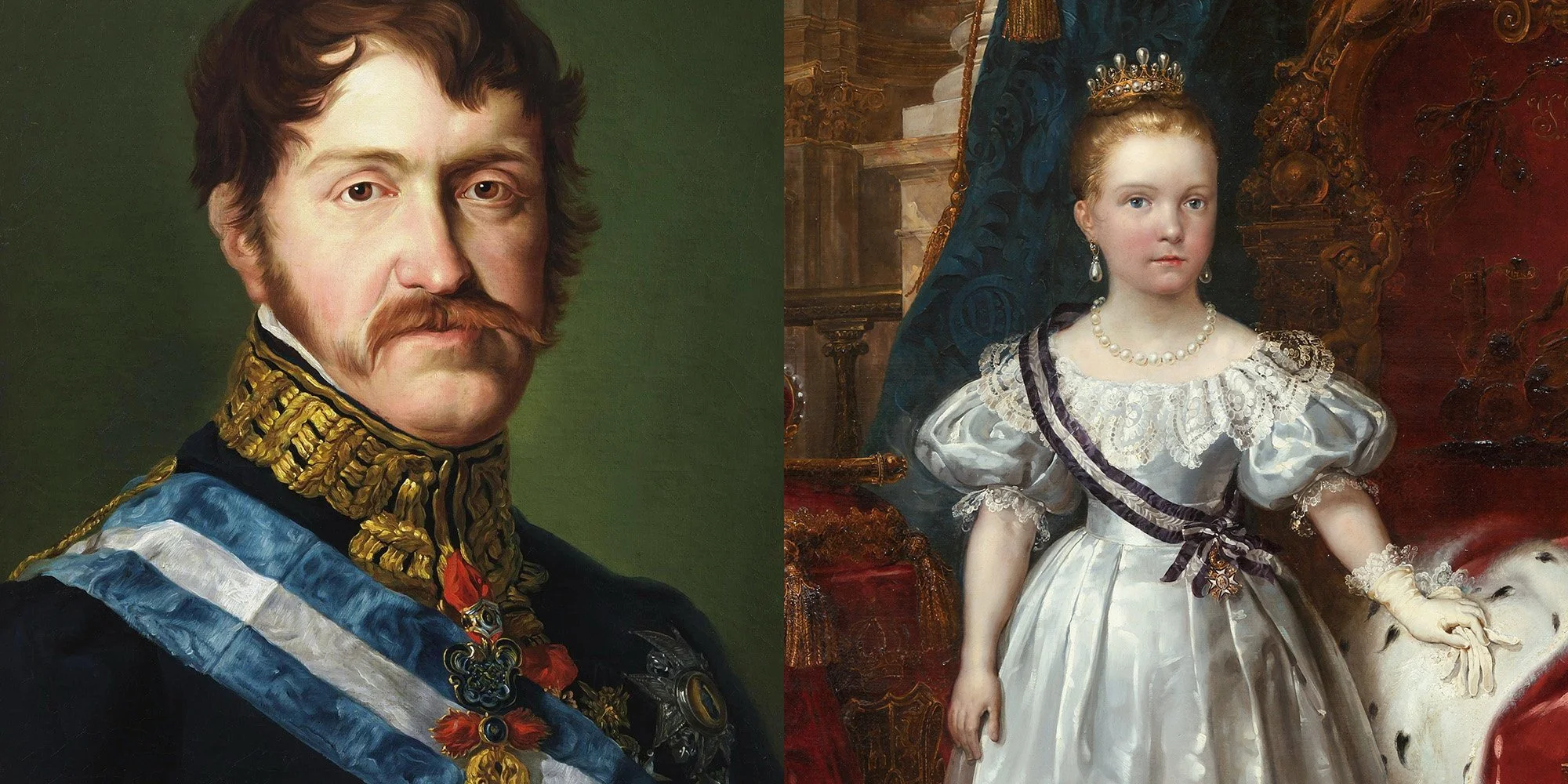Carlos María Isidro de Borbón and Isabella II (María Isabel Luisa de Borbón y Borbón-Dos Sicilias).
The Carlist Wars (1833–1876) were a series of civil conflicts in Spain that stemmed from a dynastic dispute and broader ideological divisions between traditionalists and liberals. The wars erupted after the death of King Ferdinand VII in 1833, when his daughter, Isabella II (1830-1904), was named queen under the regency of her mother, Maria Christina of the Two Sicilies. This succession was challenged by Carlos María Isidro de Borbón (1788-1855), the king’s younger brother, who claimed the throne based on the principle of male primogeniture. His supporters, known as Carlists, represented a deeply conservative faction that sought to preserve absolute monarchy, regional fueros (traditional rights), and the influence of the Catholic Church.
Opposing the Carlists were the liberal supporters of Isabella II, who aimed to modernize Spain through constitutional monarchy, centralized governance, and secular reforms. The struggle between these factions led to three major Carlist Wars (1833–1840, 1846–1849, and 1872–1876), primarily affecting regions like the Basque Country, Navarra, Catalonia, and Aragón, where Carlist support was strongest.
These wars had a lasting impact on Spain’s political and social landscape, reinforcing deep divisions that persisted well into the 20th century. The Carlist movement continued as a political force even after its military defeat, influencing Spanish conservatism and nationalist movements.

